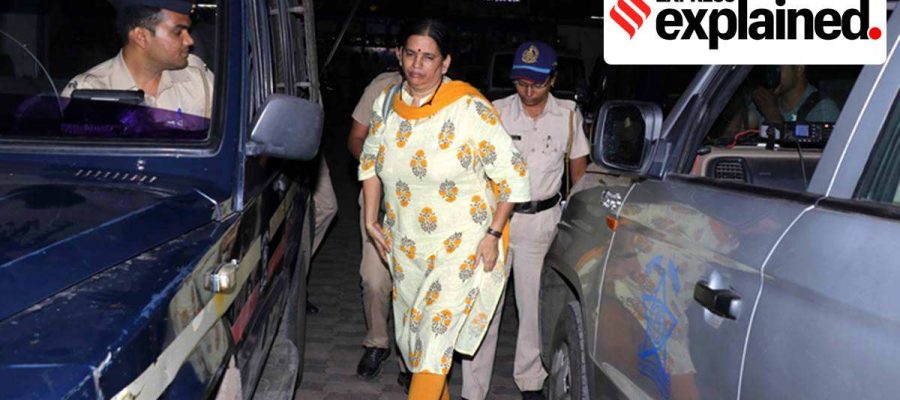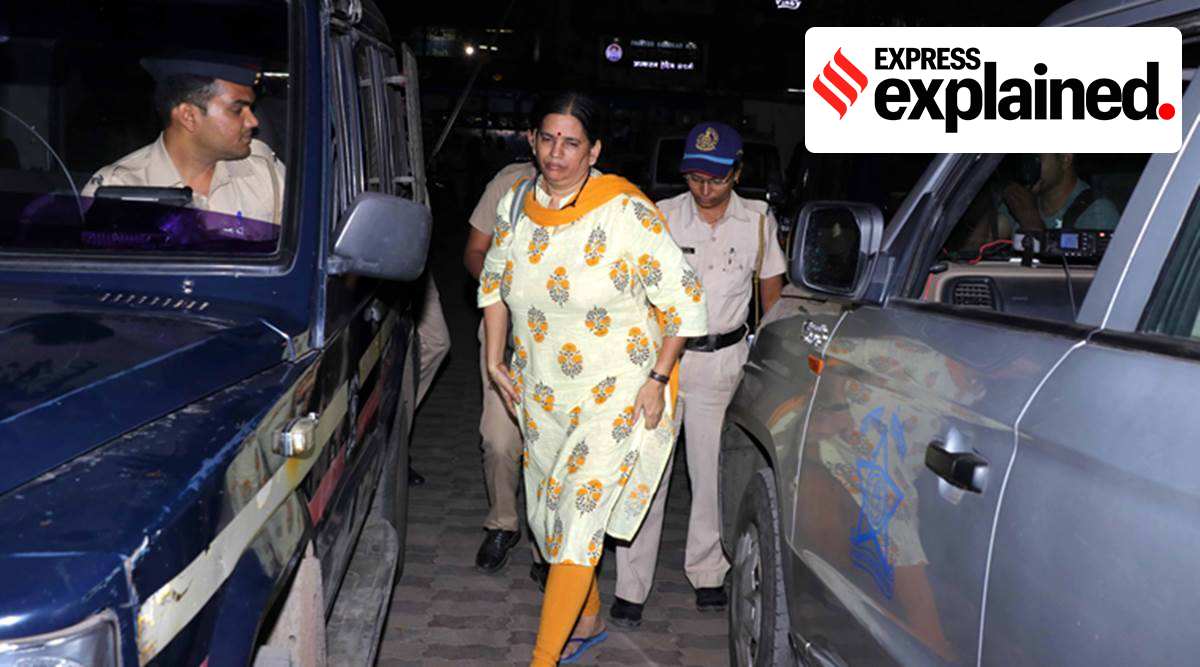? A Bench of Justices N J Jamadar and S S Shinde held that when a special court designated under the National Investigation Agency (NIA) Act, 2008 existed in Pune, the sessions judge had no jurisdiction to extend the detention beyond the stipulated 90 days.
In granting bail to lawyer-activist Sudha Bharadwaj, an accused in the Elgar Parishad case, the Bombay High Court affirmed that her detention under the Unlawful Activities Prevention Act (UAPA) was extended by a sessions court that had no power to do so.
A Bench of Justices N J Jamadar and S S Shinde held that when a special court designated under the National Investigation Agency (NIA) Act, 2008 existed in Pune, the sessions judge had no jurisdiction to extend the detention beyond the stipulated 90 days. This reading of the law on which “court” is competent to extend the detention led to the High Court’s conclusion that Bharadwaj could be granted default bail.
What is default bail?
The Code of Criminal Procedure sets deadlines for investigative agencies to complete an investigation during which the accused can be kept in custody. If the agency fails to comply with these deadlines, the accused becomes entitled to what is commonly referred to as ‘default’ or ‘regular’ bail.
Under Section 167 in the CrPC, 1973, the maximum period of detention is 90 days for the highest class of offences — those punishable with death, imprisonment for life, or a term not less than 10 years.
However, under the UAPA, a court can extend custody of an accused up to 180 days if the investigating agency seeks more time to probe the case. This makes maximum detention of 180 days a near-certainty for those accused of offences under UAPA, as a court can extend custody beyond the CrPC limits.
In the Elgar Parishad case, the legal question to be determined was whether this extension was done by the right court. The accused argued that since the extension was done by a court which had no competence, they were entitled to regular bail on completion of 90 days of pre-trial detention.
https://youtube.com/watch?v=jHfljFQ5Ov4%3Fversion%3D3%26%23038%3Brel%3D1%26%23038%3Bshowsearch%3D0%26%23038%3Bshowinfo%3D1%26%23038%3Biv_load_policy%3D1%26%23038%3Bfs%3D1%26%23038%3Bhl%3Den-US%26%23038%3Bautohide%3D2%26%23038%3Bwmode%3Dtransparent
How was custody extended in this case?
In November 2018, when the 90-day period of arrest and production before the magistrate had expired, the Public Prosecutor filed for an extension before a sessions judge who then passed an order extension custody.
The accused, through information obtained under the RTI Act, showed that the sessions judges who extended custody and took cognisance of the offences were not appointed special judges under the NIA Act by the Centre or the Maharashtra government. During the same time, “Shri Aniruddha Yashwant Thatte, Shri Abhay Narharrao Sirsikar and Shri Shyam Hariram Gwalani, the learned Additional Sessions Judges were appointed as Special Judges/ Additional Special Judges by the Government of Maharashtra for the trial of cases under section 22 of the NIA Act for Pune District vide Notifcations, dated 5th March, 2019, 29th June, 2018 and 11th July, 2017,” the High Court noted.
Who is a special judge under the law?
Prior to 2008, under the UAPA, the jurisdiction to try offences punishable with maximum imprisonment of more than seven years vested with the sessions court, and for offences punishable with maximum imprisonment of not more than 7 years, with the Magistrate.
In 2008, the NIA Act was passed and the UAPA was also amended. With that, all Scheduled Offences are to be tried exclusively by the special courts under the NIA Act, whether investigated by the NIA or the state government investigation agency. If there are no designated courts, then the sessions court, which is the highest court to try criminal offences, would have jurisdiction.
Why was the extension challenged?
The accused relied on the Supreme Court’s 2020 verdict in Bikramjit Singh v State of Punjab. The verdict had held that only a special court had jurisdiction to extend detention up to 180 days under the UAPA. They argued that since the Maharashtra government had designated a special court in Pune at that time, only that court could have jurisdiction. This meant that the sessions judge who extended the custody had no jurisdiction and the order was invalid in law. It would follow that if the extension was invalid, the accused had a right to be granted default bail before the chargesheet was filed.
The NIA argued that since it took over investigation pursuant to orders passed by the Centre, only central government-designated courts would have jurisdiction to try the cases. But in the absence of such courts, the sessions judge rightfully heard the case.
The 2020 Supreme Court judgment by a Bench led by Justice Rohinton Nariman was, however, confirmed by subsequent rulings. In September, a three-judge Bench of Justices U U Lalit, Bela Trivedi and S Ravindra Bhat said that only in the absence of special courts can a sessions court extend custody under UAPA. Relying on the SC rulings, the Bombay HC ruled in favour of the accused.
Newsletter | Click to get the day’s best explainers in your inbox
Why did the Bombay High Court refuse bail for the other accused?
While the court held that the extension of their custody was without legality, it did not strike down the orders since the state was able to prove that they were passed in “good faith” and without “any prejudice to the accused.”
The court also held that since only Bharadwaj had filed for default bail at that time while the remaining accused did not, only she was entitled to bail.
Source: Read Full Article


